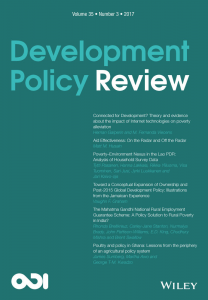Discussing the ‘obsession’ with childhood disorder labelling
In recent decades, we have too often passed the buck of social problems to children who lack the power to say no to stigmatizing psychiatric labels. Laura Batstra and Ernst Thoutenhoofd call for reflection on these non-evidence-based, ineffective and sometimes even harmful practices. The instability of labels Recently, a well-designed cohort study reported that nearly 40% of 213 toddlers classified with an autism spectrum disorder (ASD) no longer met the criteria for ASD at the age of 5-7 years. ‘Recovery’...



















1099-0860/asset/NCB_logo.gif?v=1&s=40edfd0d901b2daf894ae7a3b2371eabd628edef)